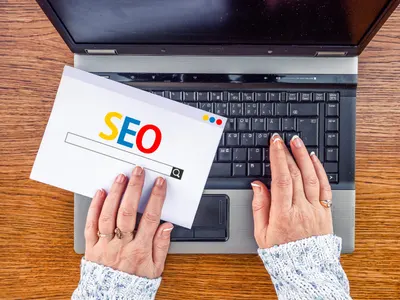SEO (Search engine optimization) is the process of optimizing a website and its content to improve visibility in search engine results pages. This involves optimizing the structure, content, and keywords of the website to make it more relevant to search engine algorithms and more attractive to users. By optimizing your website for search engines, you can increase your chances of appearing in relevant search results and gaining more website traffic. Having an effective search engine
Why is SEO important to my website
- SEO increases website visibility. One of the vital advantages of SEO is it institutes higher website traffic. Through SEO, your website has a greater chance of ranking well in the search engine results and showing up at the top of people’s searches for related keywords. Having an effective SEO makes your website satisfy the Search Essentials of search engines like Google for them to understand the contents of your website; therefore, the tendency of your website to be found on the Internet is greater.
- SEO enables a presentable user experience. Possessing an effective SEO makes your website fast and responsive. Through checking for broken pages, optimizing images and scripts, and using caching for better speed-loading, SEO allows you to evaluate the health of your website. As SEO aims to increase your website visibility, you evaluate the quality of your user experience because it is one of the factors of your website functioning well on search engines.
- SEO improves overall digital marketing. There are a lot of sources for website traffic: search, direct, referral, social, etc.; but among them, one of the highest contributors to website traffic is the search engine. SEO increases your website visibility in search engines and enables you to present a satisfactory user experience hence you will be able to attain a greater brand awareness digitally.
Additionally, there are different types of SEO where the visibility of your website in search engines is built. Here are a few of the effective types of SEO for business-driven websites:
- On-page SEO. This type of SEO is configured by the structure of your website constructed by HTML (Hypertext Markup Language)—this strategy is dependent on whoever builds your website. Implementing on-page SEO relies on the skill of your website designer, they must have the necessary knowledge about HTML tags to boost your website’s optimization. An efficient on-page SEO helps search engines understand the content and the overall deliverables of your website.
- Off-page SEO. Off-page SEO or Off-site SEO is quite the contrary to on-page SEO: this strategy is primarily contingent on the outside factors of your website. The outside factors are determined by how well you promote your website—by creating ads, through online marketing, and by any method of advertising your website. Furthermore, off-page SEO is heavily influenced by the concept of backlinks: the frequency of your website is linked by another website. The more your website is referred to by an outside source, the better your off-page SEO is; this means that the content of your website is worth being shared and used by another source.
- Technical SEO. Just like on-page SEO, technical SEO is primarily configured by your website designer. The technicality of your website such as the load time, user-friendliness, and website responsiveness are factors that dictate technical SEO. In simple terms, having a successful technical SEO means that your website is convenient to users and search engines. Technical SEO ensures that search engine bots can easily access and understand your website, leading to better visibility and rankings. Optimizing your website’s load time entails various techniques such as minimizing file sizes, leveraging browser caching, and optimizing server response times which are regulated by your trusted website designer.
By: Neo M. David | January 28, 2023



